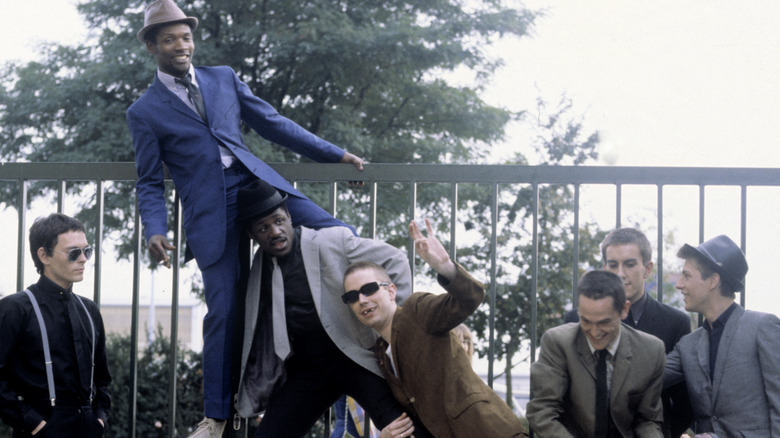This Is How Punk Became Connected With Ska Music
Ska music originated in Jamaica in the late 1950s and became the most popular music in the island nation by the early 1960s. At the time, ska was a mix of Caribbean Mento and Calypso combined with American Jazz and R&B, according to Jamaicans Music, and was the predecessor to Rock Steady, which then evolved into Reggae.
Ska's upbeat tempos and rhythms are innately danceable and laden with brass instruments, which at first glance doesn't seem like the kind of thing that would be embraced by punk rockers. But music can be fluid, and influences can come from anywhere. British punk musicians were aware of ska thanks to immigrants from the Caribbean who brought recordings of the music with them to England, the nation that ruled Jamaica for centuries until 1962, according to the Chicago Reader.
While ska was changing into related but different genres, in the mid to late 1970s punk was emerging as its own unique genre during an era when garage bands and guitar gods were being replaced — commercially at least — by the smooth sounds of yacht rock.
Meanwhile, punk rock was coming up both in the UK and in the US in cities like New York and Detroit, but in the UK bands including The Specials (pictured above) and The Clash were mining ska music and finding parallels in the messages they wanted to convey. The Chicago Reader reported that ska's light and happy sound was often belied by serious lyrics about socio-economic strife and anti-racist sentiments. We had ska-punk.
Ska just keep coming back
According to Pop Matters, Heather Augustyn, the author of several books about ska, said ska-punk worked because it had "a tempo more akin to punk, a similar energy, a similar message." Ska-punk in the late 1970s and early 1980s was largely ushered in by the record label 2 Tone. Musical-U explains the melding of punk and ska created even more "up-tempo" and "high-energy" music than the first wave of ska in the 1960s.
Ska-punk is considered the second wave of ska. The third wave of ska came largely out of the California music scene in the mid-1990s with bands like Sublime, No Doubt, The Mighty Mighty Bostones and Reel Big Fish, per Musical U, all bands that found a lot of commercial success with their brands of ska-punk and introduced ska (and rock steady) to a new generation of Americans.
According to Billboard, a fourth wave of ska is percolating in places like L.A. and Mexico, where players are taking from original 1960s ska and the later iterations of ska-punk and creating something new. Roddy Radiation, the Specials songwriter and guitarist, was featured in the ska documentary "Pick it Up! Ska in the '90s" (the trailer is posted on Vimeo). He said in the film,"That's how new music happens. You try to emulate your heroes a bit, and you're probably not very good at the time, but then you create something else."
Which pretty much describes where punk rock came from.

